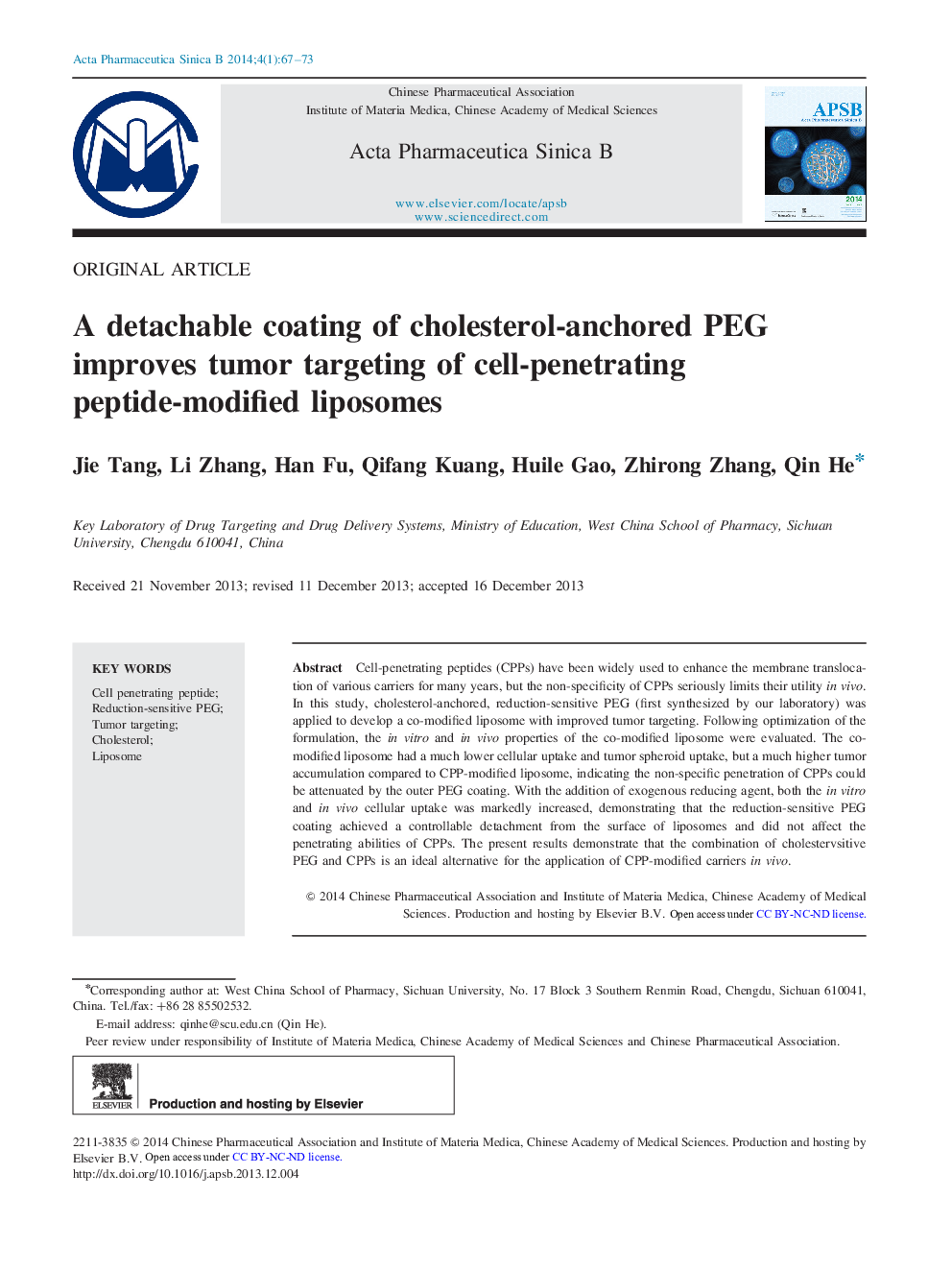| Article ID | Journal | Published Year | Pages | File Type |
|---|---|---|---|---|
| 2474813 | Acta Pharmaceutica Sinica B | 2014 | 7 Pages |
Cell-penetrating peptides (CPPs) have been widely used to enhance the membrane translocation of various carriers for many years, but the non-specificity of CPPs seriously limits their utility in vivo. In this study, cholesterol-anchored, reduction-sensitive PEG (first synthesized by our laboratory) was applied to develop a co-modified liposome with improved tumor targeting. Following optimization of the formulation, the in vitro and in vivo properties of the co-modified liposome were evaluated. The co-modified liposome had a much lower cellular uptake and tumor spheroid uptake, but a much higher tumor accumulation compared to CPP-modified liposome, indicating the non-specific penetration of CPPs could be attenuated by the outer PEG coating. With the addition of exogenous reducing agent, both the in vitro and in vivo cellular uptake was markedly increased, demonstrating that the reduction-sensitive PEG coating achieved a controllable detachment from the surface of liposomes and did not affect the penetrating abilities of CPPs. The present results demonstrate that the combination of cholestervsitive PEG and CPPs is an ideal alternative for the application of CPP-modified carriers in vivo.
Graphical abstractA cholesterol anchored reduction-sensitive PEG was applied here to help R8 modified liposomes achieve tumor targeted delivery in vivo. The combination of reduction-sensitive PEG and CPPs could overcome in vivo "kinetic barriers" and the cytoplasmic membrane barrier under the control of Cys.This new liposome formulation improves the non-specificity of CPPs and enhances the tumor targeted drug delivery of CPP-modified carriers.Figure optionsDownload full-size imageDownload as PowerPoint slide
